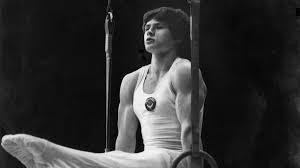
A personal statement is a critical component of your college application. It's your opportunity to showcase your personality, experiences, and aspirations beyond your grades and test scores. Crafting a compelling personal statement can set you apart from other applicants and make a memorable impression on admissions committees. In this guide, we'll walk you through the steps to write a winning personal statement that effectively communicates who you are and why you're a great fit for your chosen college.
Before you start writing, it's essential to understand the purpose of the personal statement. Admissions officers use it to get to know you as an individual, understand your motivations, and assess how you'll contribute to the campus community. Your personal statement should provide insight into your experiences, values, and goals. It should also demonstrate your writing ability and capacity for introspection. Keep this purpose in mind as you brainstorm and draft your statement, ensuring that every element contributes to a cohesive narrative about who you are.
Selecting the right topic is crucial for crafting an engaging personal statement. Focus on a specific experience, moment, or aspect of your identity that has significantly influenced you. This could be a personal challenge you've overcome, a unique hobby or passion, a meaningful volunteer experience, or a defining aspect of your cultural background. Avoid clichéd topics that many students may choose, such as generic reflections on sports victories or family vacations, unless you can offer a unique perspective. The best topics are those that allow you to share something personal and authentic that isn't covered elsewhere in your application.
The opening of your personal statement should grab the reader's attention and set the tone for the rest of the essay. Consider starting with a vivid anecdote, a thought-provoking question, or a striking statement. The goal is to draw the reader in and make them want to learn more about you. Avoid starting with clichés or overly broad statements. Instead, be specific and concise, setting the stage for the story or reflection you're about to share. A strong opening can leave a lasting impression and encourage the reader to engage with your narrative.
Authenticity is key to a successful personal statement. Be honest about your experiences, feelings, and aspirations. Don't exaggerate or fabricate stories to impress admissions officers. Instead, focus on genuine moments that have shaped you. Reflect on what you've learned from these experiences and how they've influenced your personal growth and future goals. Authenticity will resonate with readers and make your statement more relatable and compelling. Remember, admissions officers are looking for a true representation of who you are, not a perfect, polished version of an ideal applicant.
A strong personal statement uses descriptive language and vivid details to "show" rather than "tell" the reader about your experiences. Instead of simply stating that you're passionate about a subject or activity, provide specific examples that demonstrate your passion. For instance, if you're passionate about environmental conservation, describe a project or initiative you led to raise awareness or make a positive impact. Use sensory details and emotional language to make your narrative come alive. Showing rather than telling helps the reader connect with your story and understand your experiences on a deeper level.
Your personal statement should highlight what makes you unique. Reflect on how your background, culture, experiences, and perspective have shaped who you are. Consider how these elements have influenced your worldview, values, and ambitions. Emphasize the qualities that distinguish you from other applicants and how they align with the values and mission of the college you're applying to. Highlighting your unique perspective can demonstrate your potential to contribute to the diversity and richness of the campus community.
While sharing your experiences is essential, it's equally important to connect them to your future goals. Explain how your past experiences have influenced your aspirations and how the college you're applying to can help you achieve them. Discuss what you hope to study, the activities you want to pursue, and the contributions you plan to make on campus. Make a clear connection between your personal narrative and your academic and career objectives. This helps admissions officers understand your motivation for applying and how you plan to take advantage of the opportunities the college offers.
The tone and language of your personal statement should reflect your personality and be appropriate for a college application. Aim for a conversational yet professional tone that is warm and engaging. Avoid overly casual language, slang, or humor that may not translate well. Be mindful of your word choice and sentence structure, ensuring clarity and readability. Use varied sentence lengths and structures to maintain the reader's interest. Above all, be yourself and let your voice shine through.
Writing a winning personal statement requires careful editing and revision. After completing your draft, take a break before revisiting it with fresh eyes. Look for areas where you can improve clarity, coherence, and flow. Check for grammatical errors, spelling mistakes, and awkward phrasing. Consider seeking feedback from teachers, counselors, or trusted peers. They can offer valuable insights and point out any areas that need improvement. Be open to constructive criticism and make necessary revisions. Remember, a polished and well-edited statement reflects your attention to detail and commitment to excellence.
Most colleges have a specific word limit for personal statements, typically ranging from 500 to 650 words. It's crucial to stay within this limit while ensuring that your essay is concise and impactful. Avoid unnecessary repetition, filler words, or tangents that detract from your main message. Focus on the most important aspects of your story and make every word count. Adhering to the word limit demonstrates your ability to communicate effectively and follow instructions.
Writing a winning personal statement for college applications is an opportunity to showcase your individuality and share your unique story. By choosing a compelling topic, being authentic, and connecting your experiences to your goals, you can create a powerful narrative that resonates with admissions officers. Remember to show, not tell, and be mindful of tone and language. Thoroughly edit and revise your statement to ensure clarity and coherence. With careful thought and preparation, your personal statement can make a lasting impression and set you apart in the competitive college admissions process.
#trending #latest #education

How [Athlete's Name] Is Changing the Game On and Off the Field...Read More.

The Impact of Social Media on Today's Top Athletes...Read More.
 Top 10 Fashion Trends for Summer 2024
Top 10 Fashion Trends for Summer 2024
Top 10 Fashion Trends for Summer 2024
 India Decides: Latest Updates on General Election Results 2024
India Decides: Latest Updates on General Election Results 2024
Stay Informed with Real-Time Coverage and Analysis
 Mallikarjun Kharge's suggestion of "new partners" hints at potential shifts in coalition dynamics regarding government formation.
Mallikarjun Kharge's suggestion of "new partners" hints at potential shifts in coalition dynamics regarding government formation.
Both the TDP and the JDU have been allies of the Congress in the past.
 UP Election 2024 Results Highlights: Major Upset for BJP-Led NDA as INDIA Bloc Secures Significant Victory
UP Election 2024 Results Highlights: Major Upset for BJP-Led NDA as INDIA Bloc Secures Significant Victory
India's most politically significant state, Uttar Pradesh, became the arena for a fierce showdown be
 Election Results 2024 Highlights: Celebrations at BJP Headquarters as NDA Prepares for 3rd Term, INDIA Alliance Makes Strong Showing
Election Results 2024 Highlights: Celebrations at BJP Headquarters as NDA Prepares for 3rd Term, INDIA Alliance Makes Strong Showing
2024 Election Results Highlights: Poll Pundits Predicted a Third Term for PM Narendra Modi, but BJP'
How [Athlete's Name] Is Changing the Game On and Off the Field

How [Athlete's Name] Is Changing the Game On and Off the Field
The Impact of Social Media on Today's Top Athletes

The Impact of Social Media on Today's Top Athletes
Off the Court: [Athlete's Name]'s Ventures Beyond Sports

Off the Court: [Athlete's Name]'s Ventures Beyond Sports
The Most Iconic Moments in [Athlete's Name]'s Career

The Most Iconic Moments in [Athlete's Name]'s Career
How [Athlete's Name] Balances Fame and Family Life

How [Athlete's Name] Balances Fame and Family Life
The Style Game: How Athletes Are Setting Fashion Trends

The Style Game: How Athletes Are Setting Fashion Trends
From Injury to Victory: Comeback Stories of Elite Athletes

From Injury to Victory: Comeback Stories of Elite Athletes
The Ultimate Fitness Routine: How [Athlete's Name] Stays in Shape

The Ultimate Fitness Routine: How [Athlete's Name] Stays in Shape
Inside the Mind of a Champion: [Athlete's Name]'s Winning Mentality

Inside the Mind of a Champion: [Athlete's Name]'s Winning Mentality
Beyond the Field: The Charitable Work of [Athlete's Name]

Beyond the Field: The Charitable Work of [Athlete's Name]
Legends in the Making: The Next Generation of Sports Icons

Legends in the Making: The Next Generation of Sports Icons
Trailblazers: Female Athletes Who Are Dominating the Sports World

Trailblazers: Female Athletes Who Are Dominating the Sports World
The Evolution of [Sport]: How Athletes Have Changed the Game

The Evolution of [Sport]: How Athletes Have Changed the Game
Breaking Barriers: Athletes Who Redefined the GameBreaking Barriers: Athletes Who Redefined the Game

Breaking Barriers: Athletes Who Redefined the Game
The Secrets to [Athlete's Name]'s Training Regimen

The Secrets to [Athlete's Name]'s Training Regimen
From Rookie to Pro: The Inspiring Journey of [Athlete's Name]

From Rookie to Pro: The Inspiring Journey of [Athlete's Name]
Behind the Scenes: A Day in the Life of [Athlete's Name]

Behind the Scenes: A Day in the Life of [Athlete's Name]
Plot no 90, Ganpativilla, sahibabad Ghaziabad UP 201005
+91 8585968676
info@trendingblogsea.com
© techtell. All Rights Reserved.